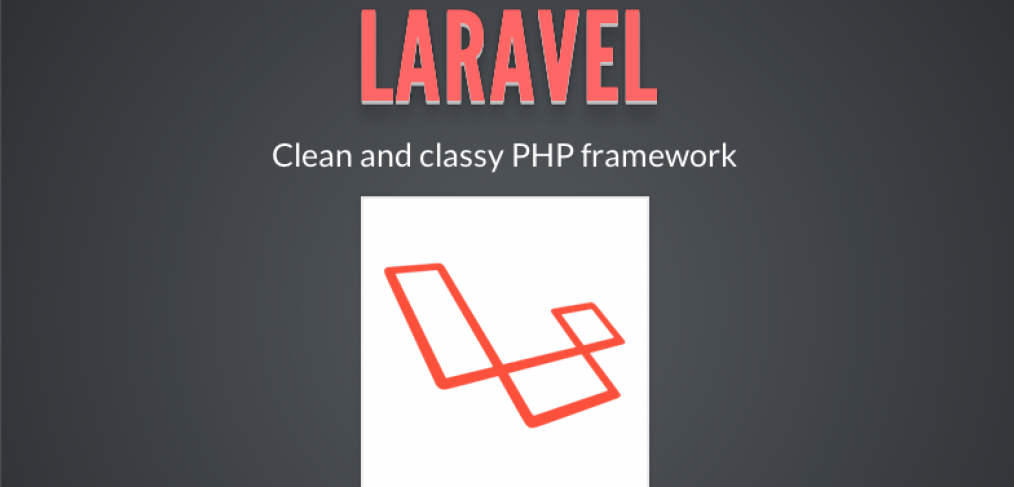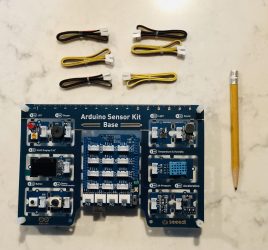
Why use Laravel?
What is Laravel? Why should any PHP developer care about it?
A few days ago I had to present at a local PHP Meetup in Fullerton, CA. I spoke about Laravel framework and why it will be the future of PHP frameworks (and that future is already here).
Below I have that presentation from my talk and also the content of the slides typed up in text. Enjoy!
laravel
Clean and classy PHP framework

Presentation by Maks
What do I do
Breakdancer (4 years)
IT support (8 years)
Web Development (3 years)
Created Bootsnipp.com in 4 days with Laravel

WHY Another Framework?
-
Easy to start with
-
Free from spaghetti code
- Eloquent syntax
-
Modularity (Bundles, now Composer)
-
Testability
-
Clean
- Dependent
- Eloquent ORM
- Easy routing
- Caching
- Combines best of many worlds
- Flexible MVC
- MIT license
As @Rutger says
“With Laravel we can do it in one line.”
Eloquent ORM
Uses prepared statements (SQL injection defense)
works with MySQL, PostgreSQL, SQLite, SQL Server
Example of actual usage:
class Company extends Eloquent {}
$company = Company::create(array(
'address' => '155 Harbor Blvd',
'city' => 'Fullerton'
));
$company = Company::find(1); echo $company->address; // 155 Harbor Blvd
$company = Company::where('city', '=', "Fullerton")->first();
$companies = Company::order_by('city', 'desc')->take(10)->get();
Relationships
One to One
class Company extends Eloquent {
public function phone()
{
return $this->has_one('Phone');
}
}
$phone = Company::find(1)->phone;
Many to One
class Company extends Eloquent {
public function customers()
{
return $this->has_many('Customer');
}
}
$customers = Company::find(1)->customers;
Many to Many
Routing
Super easy
Route::get('/', function()
{
return "Hello PHP!";
});
Route::post('user', function()
{
//
});
Route::put('user/(:num)', function($id)
{
//
});
Route::delete('user/(:num)', function($id)
{
//
});
Routing #2
Controller Routing
Route::controller('company');
Route filters
Route::get('create', array('before' => 'auth|csrf', function()
{
//
}));
Authentication
Out of the box
$credentials = array('username' => 'example@gmail.com', 'password' => 'secret');
if (Auth::attempt($credentials))
{
return Redirect::to('user/profile');
}
Get user's info : return Auth::user()->email;
Logout: Auth::logout();
Blade templating engine
Kinda like PHP-ied HTML, ex:
@if ($tags)
<p class="lead">Tags matching the search:</p>
<ul class='nav nav-list'>
@foreach ($tags as $tag)
<li><a href="{{action('tags@view', array($tag->slug))}}"><span class="label">{{$tag->snipps()->count()}} snipps</span> {{$tag->name}} </a></li>
@endforeach
Environments
$environments = array(
'local' => array('http://localhost*', '*.dev'),
'staging' => array('http://dev.mywebsite.com*'),
'production' => array('http://mywebsite.com*'),
);
Then add environment specific config files under
application/config
application
- config
- staging
- database.php
- session.php
- production
- database.php
...
Done!
Bundles (now composer packages)
Don’t reinvent the wheel…
Installation of bundles easy as :
php artisan bundle:install Mybundle

SOme cool packages:
-
Bootstrapper
-
Former
-
Oauth2 (12 service providers ready to go)
- Mailgun
- Mandrill
- Hashids
- Cartify (shopping cart ready to go)
Validation
$input = Input::all();
$rules = array(
'name' => 'required|min:3|max:32|alpha',
'age' => 'required|integer'
);
$v = Validator::make($input, $rules);
if( $v->fails() )
{
// code for validation failure :(
}
else
{
// code for validation success!
}
Artisan CLI
# Application Configuration key:generate Generate a secure application key. # Database Tables session:table Generate a migration for the sessions database table. # Migrations migrate:install Create the Laravel migration table. migrate:make Create a migration. migrate Run outstanding migrations. migrate:rollback Roll back the most recent migration. migrate:reset Roll back all migrations. # Bundles bundle:install Install a bundle. bundle:upgrade Upgrade a bundle. bundle:publish Publish all bundles' assets.
Artisan CLI #2
# Unit Testing test Run the application's tests. # Routing route:call Call a route. # CLI Options --env= Set the Laravel environment. --database= Set the default database connection.
Community


IRC channel #laravel
@laravelphp

Near future
Laravel 4 hotness (PHP 5.3, 5.4, 5.5)
Composer packages
Unit tested everything
Thanks!

Share






Yes the best one for me! I am waiting your new laravel posts!
i must admit, i’m addicted to your post dude, keep posting bro 🙂
Hi, i’m starting with frameworks, i see first Zend Framework, then Symfony, but Laravel is amazing, very easy to learn
Good post. I guess Laravel is exactly what I need. Thanks!
Thanks for the information.. i am convinced enough to go ahead with Laravel.
Why use Laravel? http://t.co/4qntLXn7Wa
Why use Laravel? Because if you want (or have) to stick with PHP, that’s the best Rails copycat you can put your hands on.. at last!
We’ve seen frameworks/platforms come and go over the past decade: http://www.christofcoetzee.co.za/laravel-sucks/
While I don’t agree with most points you present in your article, it is indeed to have a view of both sides of the coin 🙂
In my post http://www.christofcoetzee.co.za/laravel-sucks/ I only mention 5 Laravel “cons”, there are more.
Many senior software engineers agree with me on these points – anyway, I don’t want to start a flame war, I just want developers to have an open mind when evaluating technologies and not just piggyback on the mainstream hype, which tend to be short-lived, we’ve seen the same pattern with Codeigniter, CakePHP etc.
Cool.
Many junior software engineers will keep that in mind. Even if they disagree on some. And even if you don’t publish any more links to your post. Really 😉
Reason why I published my link here is because it would be stupid and rude to paste my whole article here